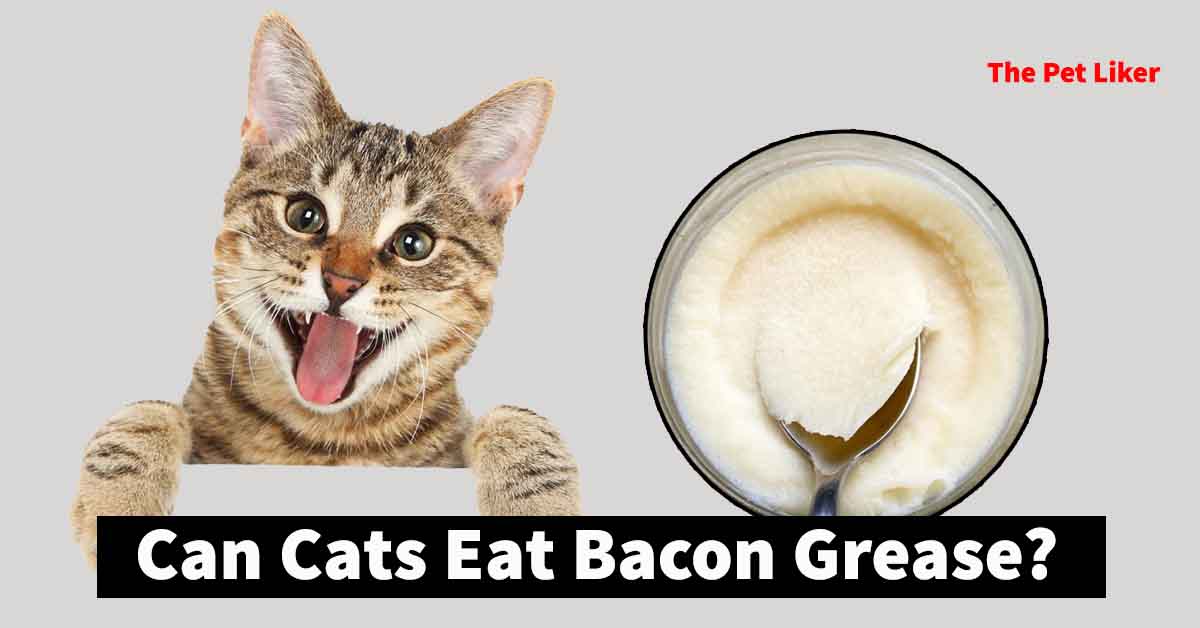Cats, those enigmatic and independent companions, have garnered quite a reputation for being finicky eaters.
As responsible pet owners, it’s our duty to ensure their safety and well-being. One common question that arises is, “Can cats eat bacon grease?”
In this comprehensive article, we will delve into the dietary preferences of our feline friends and explore the safety of bacon grease in their diet.
We’ll provide expert insights, answer frequently asked questions, and guide you in making informed choices regarding your cat’s diet.
Can Cats Eat Bacon Grease?
The Feline Palate: Understanding Cats’ Dietary Habits
Before we address the question at hand, let’s get to know our feline friends a bit better.
Cats are obligate carnivores, which means that their diet primarily consists of animal-based protein.
Their natural prey includes small mammals and birds, which provide essential nutrients like taurine and arachidonic acid.
Therefore, their dietary needs are quite distinct from omnivorous animals like humans and dogs.

The Temptation of Bacon Grease
Bacon grease, with its savory aroma and rich flavor, might seem like a treat for your cat.
However, it’s crucial to remember that cats have unique nutritional requirements. Bacon grease is high in fat, which can be problematic for cats.
Feline digestive systems are not well-equipped to handle large amounts of fat, and excessive consumption can lead to digestive issues and obesity.
Risks Associated with Bacon Grease
- Digestive Upset: Cats that ingest bacon grease may experience gastrointestinal distress, including vomiting and diarrhea.
- This discomfort can be distressing for both you and your pet.
- Weight Gain: The high-fat content in bacon grease can contribute to weight gain in cats, which is a common health concern.
- Obesity can lead to various health problems, such as diabetes and joint issues.
- Pancreatitis: In severe cases, the ingestion of excessive fat, like that found in bacon grease, can trigger pancreatitis in cats.
- This is a painful inflammation of the pancreas and requires immediate veterinary attention.
Safe Alternatives and Treats
If you’re looking to treat your cat, there are safer alternatives that are more suitable for their dietary needs:
- Commercial Cat Treats: These are specifically formulated to meet the nutritional requirements of cats. Look for treats that are low in fat and high in protein.
- Small Portions of Cooked Meat: Offering your cat small portions of cooked chicken or fish can be a safer and more natural treat option.
- Catnip or Cat Grass: Many cats enjoy the effects of catnip or chewing on cat grass, both of which are safe and can provide mental stimulation.
FAQs about Cats and Bacon Grease
Here are some frequently asked questions about whether cats can eat bacon grease:
Q: Can a small amount of bacon grease be given as an occasional treat to my cat?
A: While an occasional small taste of bacon grease may not harm your cat, it’s best to avoid making it a regular treat due to the high-fat content.
Q: Can a small amount of bacon grease be given as an occasional treat to my cat?
A: While an occasional small taste of bacon grease may not harm your cat, it’s best to avoid making it a regular treat due to the high-fat content.
Q: What should I do if my cat accidentally ingests bacon grease?
A: If your cat consumes bacon grease and exhibits symptoms like vomiting or diarrhea, consult your veterinarian immediately for guidance.
Q: Are there any safer alternatives for treating my cat?
A: Yes, there are many cat-friendly treats available in pet stores that are formulated to meet feline dietary needs.
Q: Can cats eat cooked bacon instead of bacon grease?
A: While cooked bacon is less fatty than bacon grease, it’s still not an ideal treat for cats due to its high sodium content.
Q: How can I ensure my cat’s diet is well-balanced?
A: Consult your veterinarian to create a balanced diet plan tailored to your cat’s specific needs. Commercial cat food is formulated to meet these requirements.
Conclusion
In conclusion, while it may be tempting to share a bit of bacon grease with your cat, it’s best to exercise caution.
Cats have unique dietary needs, and their digestive systems are not well-suited to handle the high-fat content found in bacon grease.
Excessive consumption can lead to digestive upset, weight gain, and even serious health issues like pancreatitis.
As a responsible pet owner, it’s important to prioritize your cat’s health and well-being.
Instead of bacon grease, opt for treats that are specifically designed for cats or offer small portions of cooked meat.
If you ever have concerns about your cat’s diet or suspect they’ve ingested something harmful, consult your veterinarian for guidance.
Your veterinarian can provide you with personalized advice to ensure that your furry friend stays healthy and happy.
Thanks for reading our blog! Always stay with The Pet Liker!! Have a wonderful day!!!

